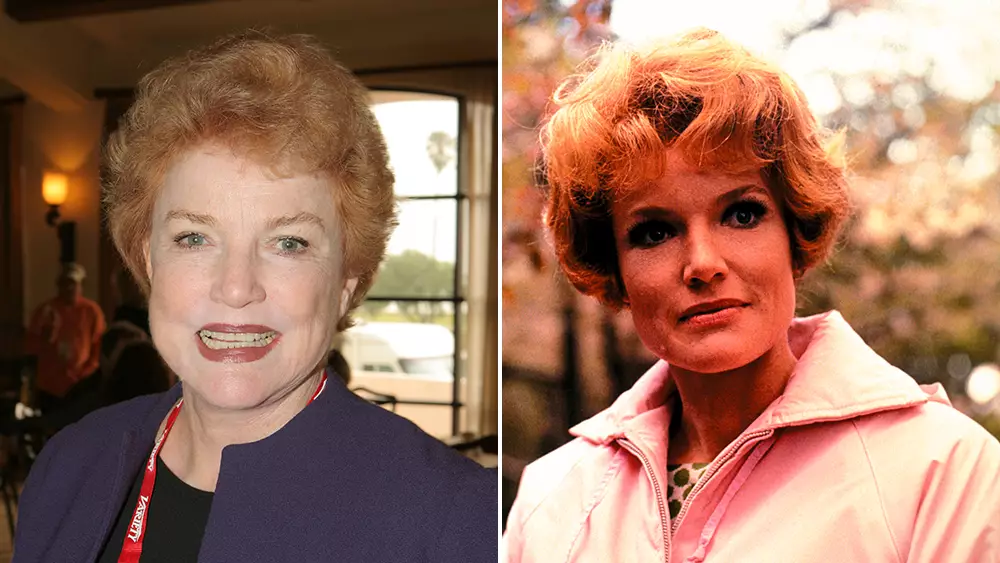The entertainment world recently mourned a profound loss with the passing of Pippa Scott, a remarkable actress whose career journey mirrored the transformative evolution of film and television from the mid-twentieth century onward. Known for her roles in classics such as “The Searchers” and “Auntie Mame,” Scott was not only an actress but a vibrant force whose legacy transcends mere cinematic achievements. Dying at the age of 90 due to congenital heart failure, she leaves behind a treasure trove of memories, artistic contributions, and humanitarian efforts that resonate deeply within the industry and beyond.
A Life Enriched by Art and Activism
Born in 1934 to parents who played pivotal roles in the entertainment industry, Scott became a product of her environment. With a mother who shone on stage and a father whose talent garnered him an Oscar nomination, it was perhaps inevitable that she would carve her own niche in acting. However, Scott’s prowess was never confined to the glamorous frames of Hollywood. Her academic journey through prestigious institutions like Radcliffe and the Royal Academy of Dramatic Art showcased her commitment to honing her craft. It wasn’t just about fame for her; it was about using her platform to instigate real positive change in society.
In the ‘90s, recognizing the power of her voice beyond acting, Pippa Scott pivoted her energies toward human rights advocacy. Founding the International Monitor Institute, she played an instrumental role in documenting war crimes during the grim epochs of the Bosnian and Rwandan genocides. This transition from the bright lights of Hollywood to the stark reality of humanitarian crises speaks volumes about her character—her heart was as committed to justice as it was to art.
Legacy of Compassion
Scott’s legacy is enriched not only by her significant acting credits, which include appearances on iconic shows like “The Twilight Zone” and “The Dick Van Dyke Show,” but also through her unwavering commitment to social causes. By producing powerful documentaries for PBS that shed light on war crimes and humanity’s darker chapters, she transformed her career into a platform for advocacy. This duality—being both an entertainer and a tireless advocate—set her apart in a field often driven by self-interest and notoriety.
Her marriage to Lee Rich, a formidable figure in television production, further immersed her in the world of narrative storytelling but also did not deter her from her activism. The fact that they remained close despite their later divorce speaks volumes about her ability to maintain bonds that stood the test of personal trials, illustrating a profound aspect of her personality—she believed in connection and community, both personally and socially.
A Call to Embrace Impact
As we reflect on Pippa Scott’s life, we are reminded of the beauty and necessity of merging artistry with advocacy. In an era where celebrity often overshadows character, Scott serves as a compelling reminder that true impact comes from sincere dedication to the betterment of society. Her story inspires us to pursue passions that resonate beyond our personal lives, encouraging a legacy that uplifts and transforms. Scott’s journey inspires us all to harness our capabilities, whether through the arts or humanitarian endeavors, to create a more just and compassionate world.


Leave a Reply